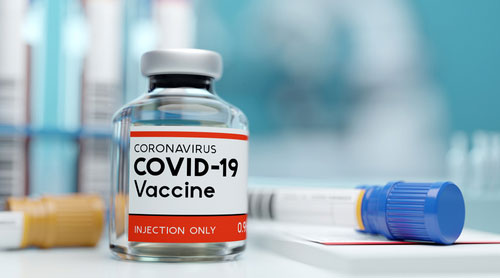
Global Covid-19 vaccine divide feared
Don't Miss
Advance orders from high-income countries could leave hundreds of millions of people in developing countries without vaccines
Researchers at the Duke University Health Innovation Centre in the US who analysed the existing purchase agreements and production capacities have found that high-income countries and some middle-income countries have already reserved 8.8 million doses of yet-to-emerge vaccines.
Their assessment suggests that some high-income countries will be able to vaccinate their entire populations many times over before hundreds of millions of people in low-income countries are able to receive the vaccines.
Canada, for instance, has ordered enough to vaccinate its population five times over, while advance orders from the UK and the US could cover their populations twice over. India, Bangladesh and Egypt are among countries whose tentative orders would cover under 30 per cent of their populations.
India’s large domestic vaccine production capacity places it in a stronger position than most low-income countries relating to its potential ability to secure Covid-19 vaccines but deploying the vaccines could pose challenges, Andrea Taylor, assistant director at the Duke Centre, told The Telegraph.
The analysis says India has confirmed 600 million doses — enough for 300 million people — but is negotiating 1 billion additional doses. India is currently assessing three vaccine candidates — two home-grown and one from Astra Zeneca to be produced in the country.
“If any of these candidates are successful, India will have access to enough vaccine in the early months of the rollout to vaccinate high-priority groups such as healthcare workers and high-risk populations,” Taylor said. “But distribution will be a significant challenge in rural areas.”
The researchers have predicted that ensuring a cold-chain (low temperature) distribution network and sufficient numbers of trained healthcare workers to deliver the vaccine across rural areas will be challenging.
“The health providers will also need tracking systems to ensure that the two-dose vaccines are provided within the correct timeframe,” Taylor said.
However, health officials and members of a Covid-19 vaccine expert panel have underlined that India already has a network used to delivering childhood vaccines. They say that unless vaccine candidates are approved, it is difficult to determine the doses and target populations.
A member of the expert panel had told this newspaper last month that the quantum of doses available would depend on which vaccine candidates or how many of the candidates get approved for use.
“But we have the relevant experience for nationwide vaccine delivery through the immunisation programme. Under the polio campaigns, millions of children were vaccinated nationwide on single days,” a senior vaccine researcher said.
The Duke Centre’s analysis estimates that while it might take three to four years to produce enough vaccines to cover the world’s population, high-income countries have purchased in advance 3.8 billion doses of the vaccine candidates through bilateral pacts with vaccine makers. Another 5 billion doses are under negotiation.
The findings imply that most people in low-income countries would need to wait until 2024 for Covid-19 vaccines. “An ambitious effort to create a global system of vaccine equity is being undermined as a handful of countries… secure as many doses as they possibly can,” Elina Urli Hodges, assistant director at the Duke Centre, said in a media release.
The report has found that doses to cover only 250 million people have been confirmed as purchased so far under Covax, an international effort involving both high-income and low-income countries that promised equal access to Covid-19 vaccines, regardless of income levels.
The analysis has revealed that several Covax signatories, including the UK, the European Union and Canada, are “effectively undermining” the pact by negotiating “side deals” for large vaccine orders that will “result in a smaller piece of the pie for equitable allocation”.





0 Response to "Global Covid-19 vaccine divide feared"
Post a Comment
Disclaimer Note:
The views expressed in the articles published here are solely those of the author and do not necessarily reflect the official policy, position, or perspective of Kalimpong News or KalimNews. Kalimpong News and KalimNews disclaim all liability for the published or posted articles, news, and information and assume no responsibility for the accuracy or validity of the content.
Kalimpong News is a non-profit online news platform managed by KalimNews and operated under the Kalimpong Press Club.
Comment Policy:
We encourage respectful and constructive discussions. Please ensure decency while commenting and register with your email ID to participate.
Note: only a member of this blog may post a comment.